Search Results
Showing results 1 to 19 of 19
Stacking Dice
Source Institutions
In this math game, learners try to earn the most points by winning stacks of four dice. Learners practice number recognition and addition skills.

Exploring the Universe: Space Guess Quest
Source Institutions
Space Guess Quest is a fun game that encourages participants to identify the many types of objects in space, from human-made spacecraft to nebulas, galaxies, stars, and worlds.
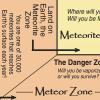
Space Rocks!: A Meteorite Game
Source Institutions
In this board game, learners explore the origins of meteors, meteoroids, and meteorites as well as the their characteristics and importance. They also discover some misconceptions about meteors.
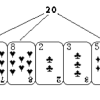
Ten, Twenty, Thirty
Source Institutions
This game for one to four players uses a deck of cards to develop mental addition skills.
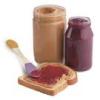
Peanut Butter and Jelly Robot
Source Institutions
This is an activity about robotics programming. Learners will discover how precise programmers have to be as they instruct a friend to make a peanut butter and jelly sandwich.
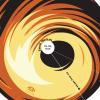
Race Around the Black Hole
Source Institutions
In this game, learners cutout a model black hole "cone" and attempt to roll around a marble or other small spherical object without touching the event horizon.

Is it a Fair Game?
Source Institutions
In this math activity, learners play two versions of a card game and decide what makes a game fair. Learners also practice addition and subtraction skills.

Taste Match Game
Source Institutions
In this activity (3rd activity on the page), learners taste test different foods and categorize them as sweet, bitter, sour, or salty. Learners compare their results with the group.

The Great Toss Off!
Source Institutions
In this math game, learners toss plastic cups to land just right and collect points to win.
Pom-Pom Probability
Source Institutions
In this math activity, learners predict how many pom-poms they can toss inside a circle from three feet away. Use this activity to help learners explore probability.

Bank It!
Source Institutions
This simple but open-ended math game introduces basic probability concepts using coins and dice. Players roll the dice and collect coins to match the number rolled.
Tree Poker
Source Institutions
In this activity (p.14-15 of PDF), learners discover the concepts of competition and limiting factors as they relate to plant and animal communities.

Exploring Fabrication: Self-Assembly
Source Institutions
In this activity, learners participate in several full-body interactive games to model the process of self-assembly in nature and nanotechnology.

What am I?
Source Institutions
In this activity, learners examine nanoscale structures of common things.

Frog Olympics
Source Institutions
Did you know that a bullfrog can jump a distance of 10 times its body length? Learn more about nature's most acrobatic amphibian, the frog, through this set of short, hands-on activities.
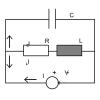
Wire Maze
Source Institutions
Learners create an electrical-circuit maze out of wire, then try to pass a paperclip through the maze without touching the wire.

Toss a Score!
Source Institutions
In this math game, learners toss plastic cups to land just right and collect points to win.
Odd or Even
Source Institutions
In this math activity, learners play a game and try to collect the most cards by guessing if the next number to appear will be odd or even.
PomPom Toss
Source Institutions
In this activity, learners play a game that helps young mathematicians recognize how the numbers 0 through 5 are related. Learners toss five pompoms into circle made out of string on the floor.
